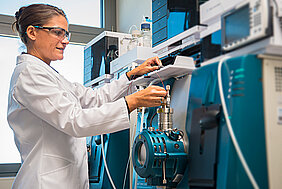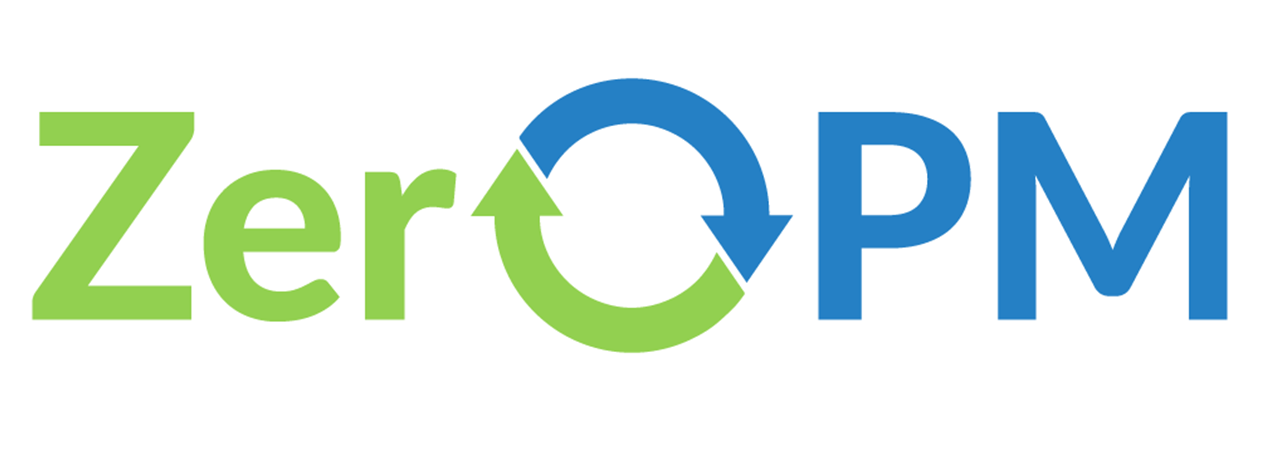Persistent, mobile (PM) substances are being recognized as serious threats to the safety of water resources. In many cases, drinking water supplies have to be purified using expensive technologies because of contamination by PM substances. The most famous example of PM substances are per- and polyfluoroalkyl substances (PFAS), but there are numerous others. This worldwide problem has triggered new policy and monitoring actions and the European Green Deal contains a broad initiative for chemical and water regulations for PM substances. As part of this effort, a new, wide-reaching European Research project, Zero Pollution of Persistent, Mobile substances, ZeroPM, will start in autumn 2021. Funded under the H2020 call "Building a low-carbon, climate resilient future: Research and innovation in support of the European Green Deal: Innovative, systemic zero-pollution solutions to protect health, environment and natural resources from persistent and mobile chemicals", ZeroPM is funded with 11.6 mio. €, includes 15 partners and will run for 5 years.
The project is led by the Norwegian Geotechnical Institute with Dr Sarah Hale as the Project Coordinator and Prof. Hans Peter Arp as co-coordinator. ZeroPM will interlink and synergize prevention, prioritization and removal strategies to protect the environment and human health from PM substances. To do this, ZeroPM will establish an evidence-based multilevel framework to guide policy, technological and market incentives to minimize use, emissions and pollution of entire groups of PM substances.
ZeroPM will deliver policy improvements, an increase in business opportunities and competitiveness, an improved livelihood for EU citizens and beyond state of the art methods, to prevent regrettable substitution and regrettable remediation of PM substance groups. ZeroPM will be the pathfinding project enabling the ambitions of the Chemical Strategy to become an on-the-ground reality, supporting the movement towards a zero pollution, toxic-free environment.
The ZeroPM partners are: Stockholm University: Sweden, Vrije Universiteit Amsterdam: The Netherlands, DVGW-Technologiezentrum Wasser (German Water Centre): Germany, Milieu Law and Policy Consulting: Belgium, ChemSec: Sweden, German Environment Agency: Germany, ETH Zurich: Switzerland, University of Luxembourg: Luxembourg, University of the Aegean: Greece, TG Environmental Research: UK, Chalmers University of Technology: Sweden, Norwegian Water Research Institute: Norway, University of Vienna: Austria and Fraunhofer Institute for Toxicology and Experimental Medicine: Germany.
TZW will lead the work package "Technical solutions, method development and analytics" in the ZeroPM project. In this work package, experimental investigations will be carried out on the removal of short-chain PFAS and other PM substances from water by an innovative process combination of activated carbon filtration and ion exchange. Also considered is the regeneration of the materials and the electrochemical degradation of possible PM residues. Tests will be carried out in the laboratory of the TZW as well as on a pilot scale in two waterworks. The suitability of the process for drinking water treatment and for the treatment of reverse osmosis (RO) concentrate to prevent the release of these substances into the environment will be tested. In addition, comparative studies on the retention of these substances with different dense nanofiltration (NF) and RO membranes will be carried out on a laboratory unit at the TZW pilot plant.
In addition, the PFAS sum parameter "Total Oxidizable Precursor"(TOP assay), which may gain importance in the context of the new EU drinking water directive, will be further optimized and investigations on the influence of different sample preparation techniques on PFAS concentrations in aqueous eluates will be performed.
Within the framework of ZeroPM, TZW will also advance the development of new analytical detection methods for further PM substances, carry out monitoring programs on these at various waterworks and evaluate the technical removal options for these new substances.
Further information on the project website www.zeropm.eu

![[Translate to English:] Prüfstelle-Produktprüfung_Teststand Test centre and product testing](/fileadmin/_processed_/0/9/csm_TZW-Karlsruhe_Pruefung_Geraete-Teststand_377188946c.jpg)

























